6 Easy Steps to Get Your Dog to Come When Called the First Time, Every Time





Offering Board and Trains, In-Home, and Online Dog Training Get Started

Reasons Why Your Dog Is Peeing in the House
As previously mentioned, there could be many reasons why your pup relieves itself inside your house. With patience and knowledge, you will find the root of the problem and easily solve it. One of the following reasons below may be what you are dealing with if your dog won’t pee outside:
Poor potty training may be the primary cause of your dog’s accidents inside the house. This accident may be because your pup wasn’t properly trained, or they already developed different lifestyle habits before you. It might also be challenging to switch from using pee pads to peeing outside.
If this is the case, you would need to re-train your dog. Consistency is crucial when potty training your pup. Given your dog’s frequent urination needs, you should provide them with plenty of opportunities to relieve themselves when potty training.
We will discuss this further later on.
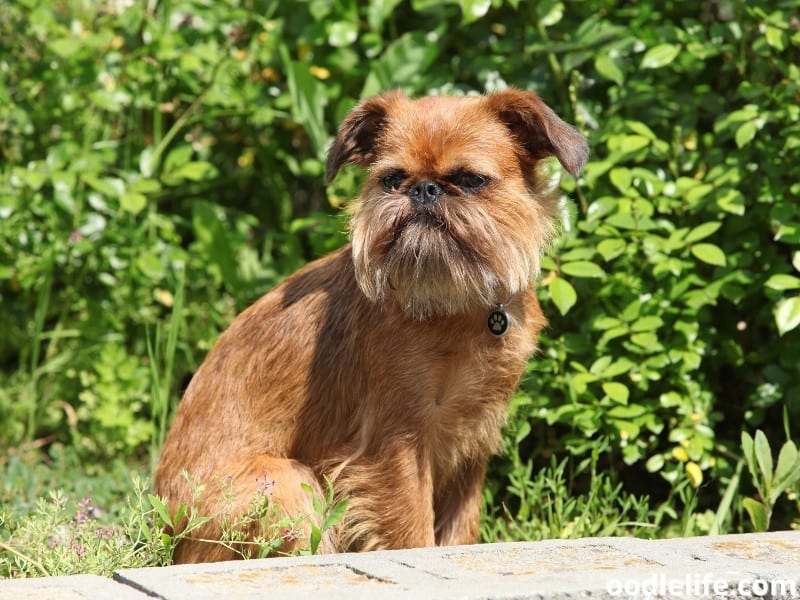
If your pup usually potties outside but, all of a sudden, refuses to do so, it could be a behavioral problem. This issue may be triggered by their sex hormones, which cause urine marking. Marking can be caused by a change in the environment and could develop into a habit.
As soon as you can, spay or neuter your puppy when they start urine marking. Training a dog to stop marking in the house will become more challenging the longer your pup waits to get spayed or neutered.
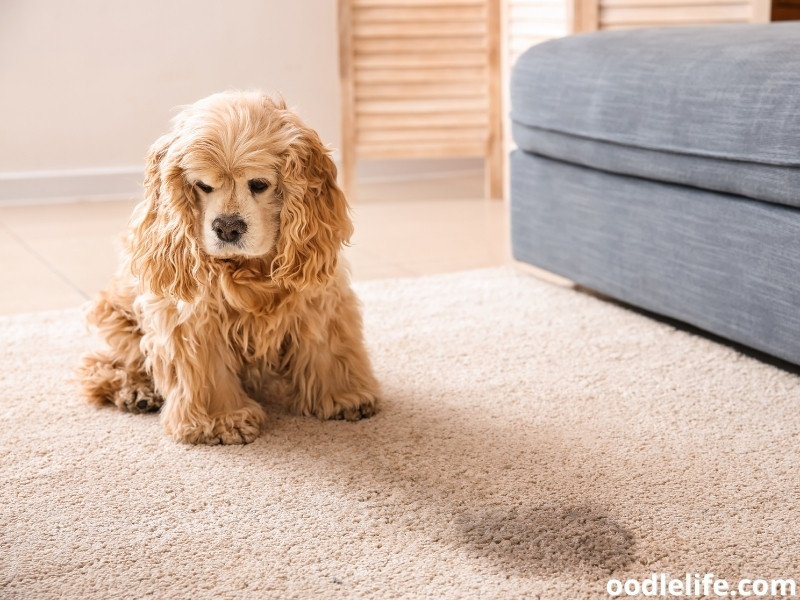
Your dog’s fear of going outside could be the reason they keep peeing on your carpet or in your house. Your pup’s refusal to potty outside might have an underlying cause, like feeling vulnerable because of a bad experience.
The outside environment could also be frightening as a whole, which stresses them out. When on walks, remember to help them lessen their anxiety. Furthermore, if this issue only occurs when you leave your pup at home alone, it may be due to separation anxiety.
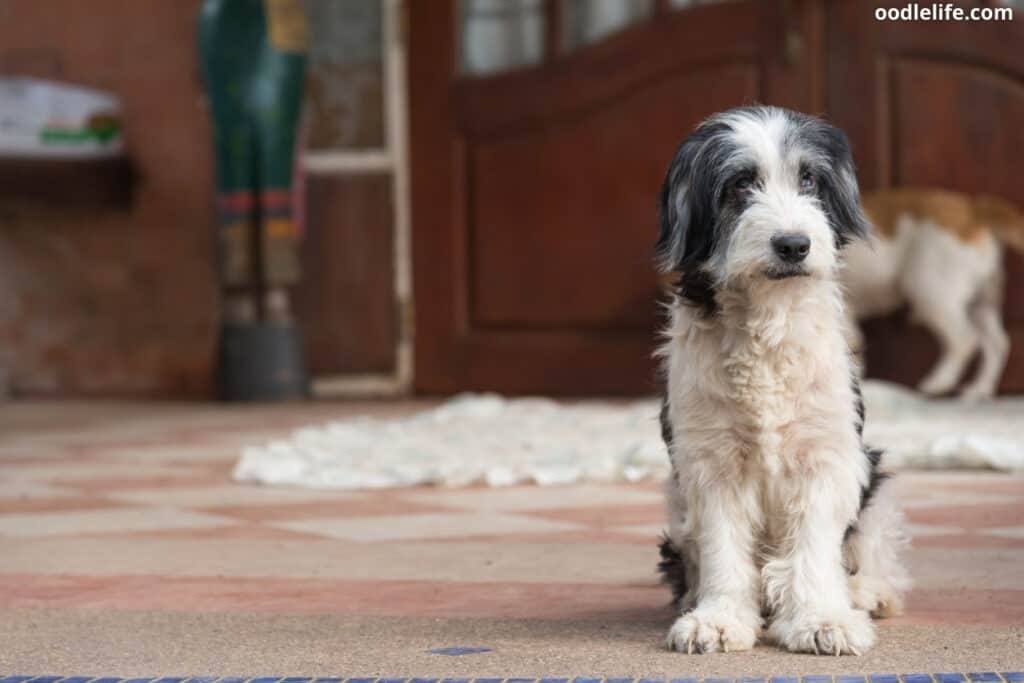
Overexcitement is another reason your dog may urinate indoors. Overstimulation results in “happy peeing,” which is more frequent in puppies. This behavior can surface when returning home after a long day, when a visitor arrives, when playing with their favorite toy, or in any other overstimulating situation.
This behavior is typically not a recurring problem. However, some dogs may have moments of excitement more frequently. This behavior can be unanticipated, so make sure to be on the lookout.
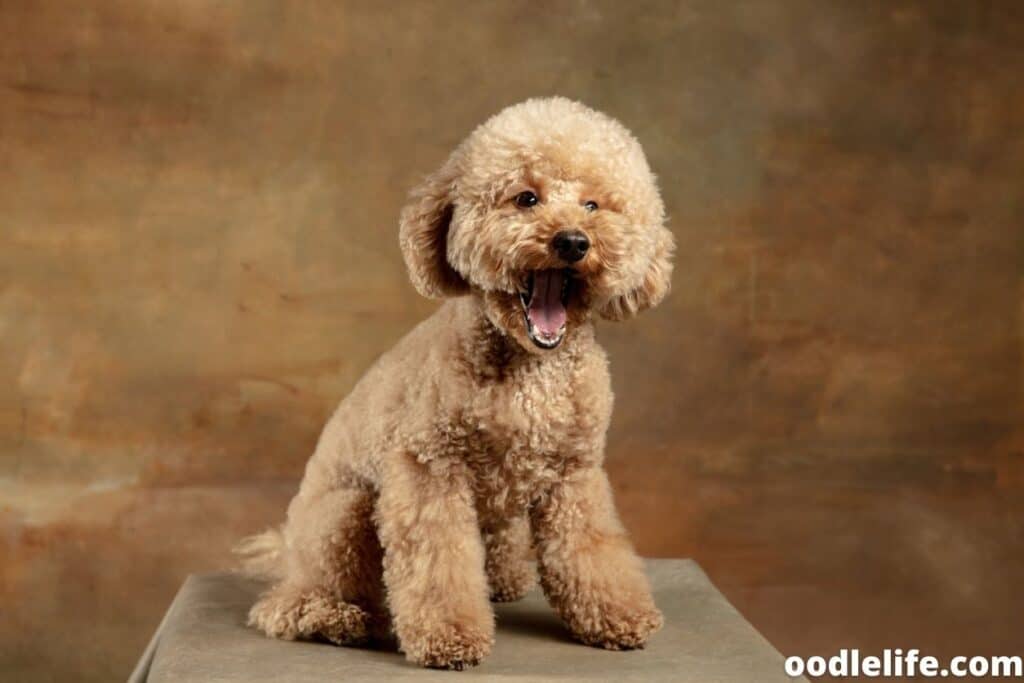
Peeing indoors is a sign of submissive urination. If your dog was raised in an abusive environment or if it shares a home with other dogs, this will happen. Even when interacting gently with other dogs and people, dogs who have lived in an abusive environment may display submissive urination.
Similarly, dogs living in households with more than one pup may urinate inappropriately to show they are the alpha among the group. Even if your dog may be the only one in your home, it might exhibit submissive urination when you tell it what to do.
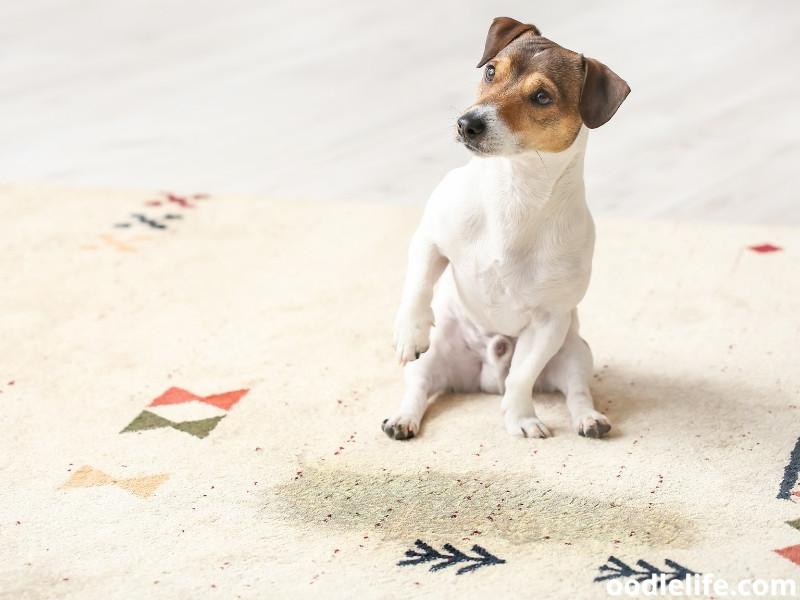
Having health issues may also be the cause of your pup’s urinary accidents in the house.
One of these health issues is having a urinary tract infection. When bacteria enter the urinary tract through the urethra, UTI can occur, which will cause pain and inflammation. Your furry friend probably has a UTI if they frequently have trouble going outside, they urinate in the house, or they have blood in their urine.
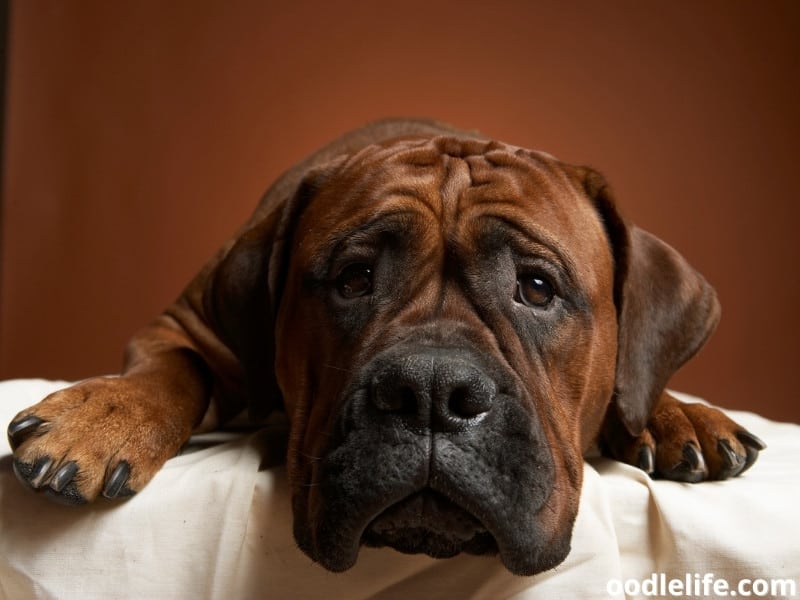
Incontinence, a problem that plagues many neutered dogs, could cause your pup to have urination mishaps. However, young dogs that haven’t been spayed or neutered may also have incontinence problems. If they occasionally leak urine puddles on the floor or in the bed while sleeping, then they might have incontinence.
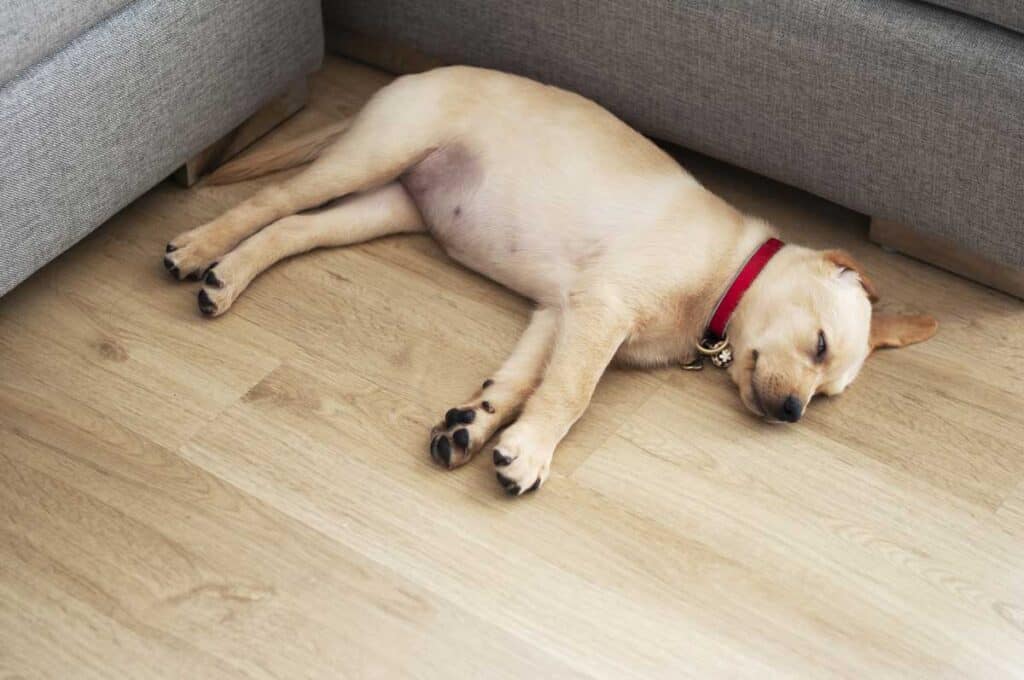
If your dog has diabetes, their blood sugar level will continue to rise if not treated at an early stage. They will produce even more urine as a result of the abnormally high glucose level and fluid loss, which will make them more dehydrated. In return, this makes your pup more likely to drink more water, causing more frequent urination.
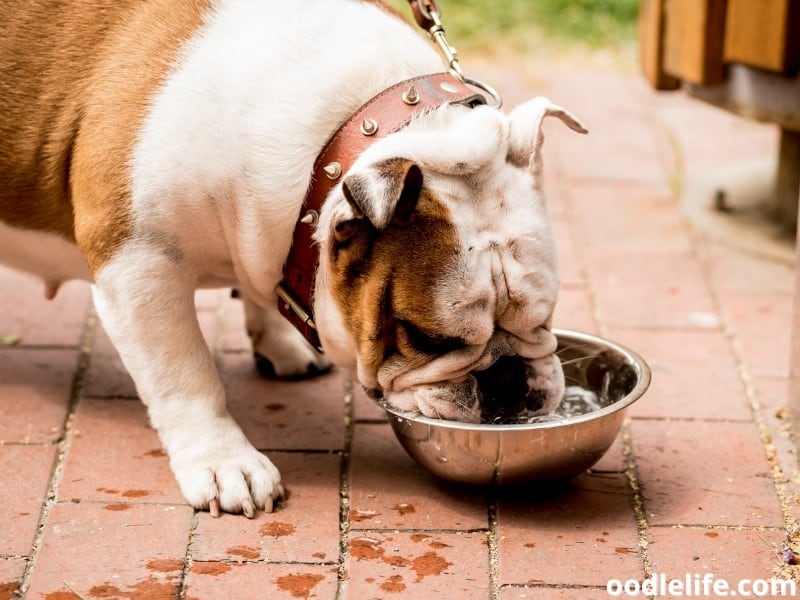
If your dog is older and suffering from arthritis, it may also have accidents with its urination. When your pup tries to stand up or move around, the degenerative changes brought on by arthritis-related joint inflammation can hurt them.
Due to this joint pain, it might be difficult for a dog to get up quickly enough to make it outside to potty. They might prefer to relieve themselves while remaining motionless due to the severity of the joint pain.
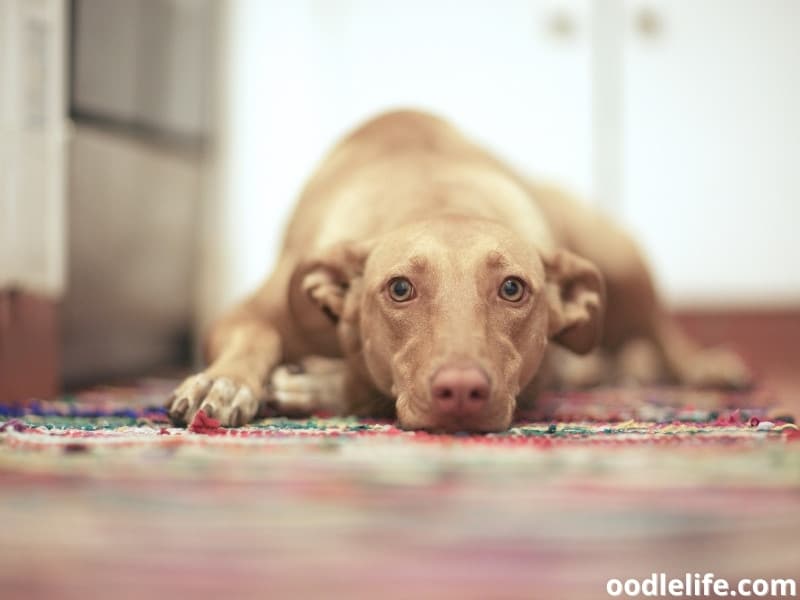
Older dogs with cognitive disorders may experience confusion and agitation. This may also affect the nerves that control your dog’s bladder, which results in unintentional urination. They may drink more water as a result of a cognitive disorder, sometimes even immediately after drinking.
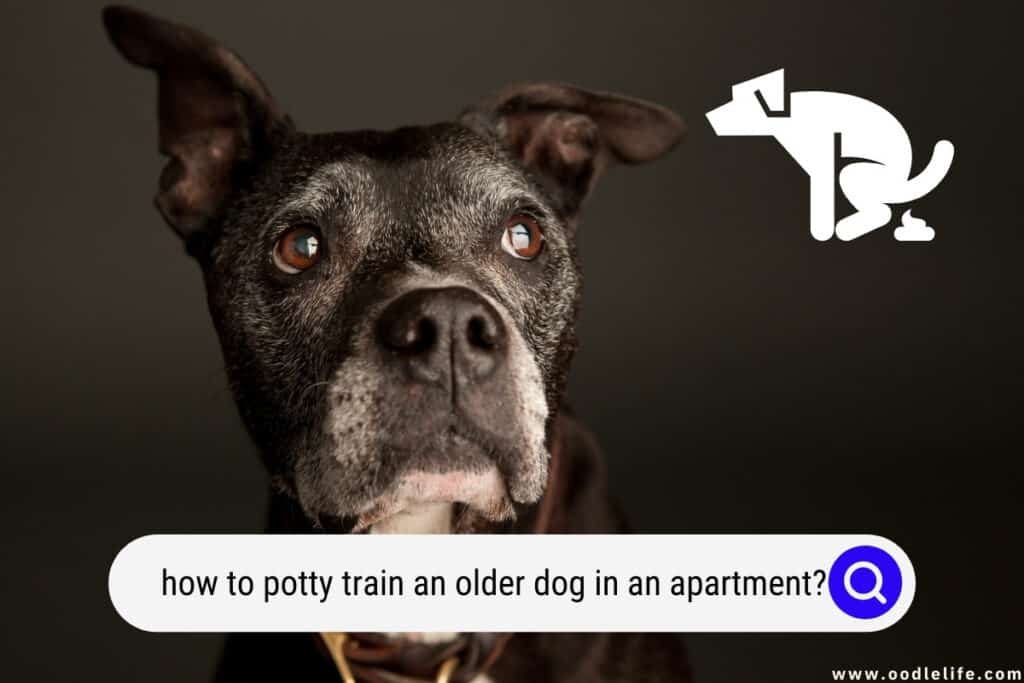
And from an Animal Behaviorist: My Newfie Won’t Pee In the Yard
Dear Dr. Diane: I have two Newfoundland dogs. One is 2 years old and his brother is 11 months.
We have moved in the last two months and the younger of the dogs will not pee in the back courtyard.
I have put down some grass but he has just stopped. When we take him out, he will pee with no problem but when at home he will just hold himself.
We have done all sort of things to encourage him but he remains with a full bladder until he goes for a walk. Can you help us please!
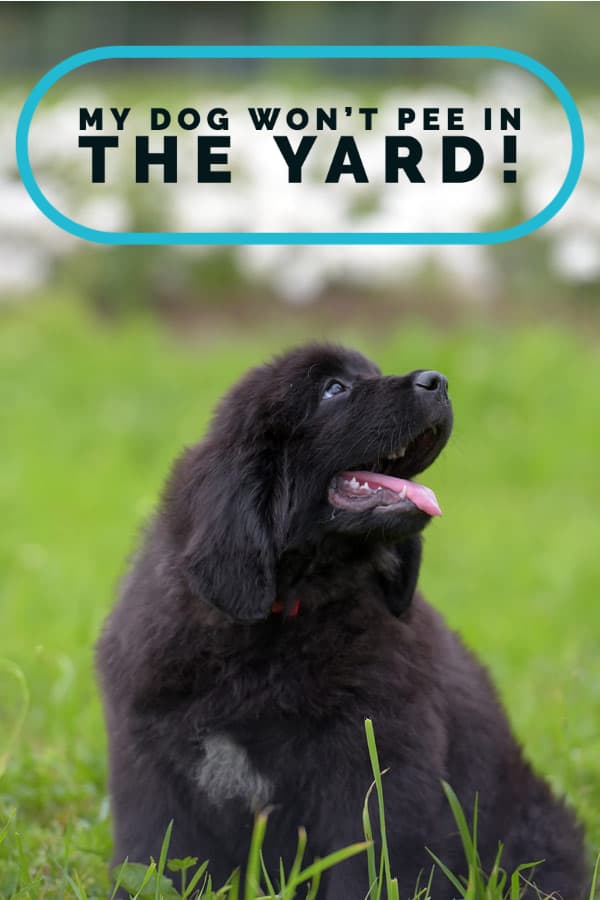
Your 11-month-old Newfie is still a puppy, and he is still learning to adapt to you and your family. You have just (within the past two months) moved to a new house with which he is relatively unfamiliar.
His daily routine and environment have been altered, and he is not sure that it is acceptable to do his business in your courtyard.
He may regard it as an extension of his new home in which he has been trained NOT to urinate or defecate. Remember, these gentle giants, with their sweet temperaments, just want to please you!
I would take him out in the courtyard on a leash as though he were going for a walk and stay out with him. (More tips if your dog won’t poop on leash)
Have him observe his older brother pee and poop there, and praise your older dog when he does his business so that your younger dog can see that this is acceptable and desirable behavior.
Continue to take him on walks outside also as he can become ill if he doesn’t regularly do his business.
Be patient with him, and give him some time to adjust to his new circumstances.
Just as many people who live in a condo or apartment and don’t have a back yard, you may have to continue to take him for walks outside.
They both sound like great dogs. Just praise and pet them whenever they do their business in the courtyard.

Dr. Pomerance is an animal behavior specialist and an expert on topics such as deciding which puppy is best for your family, how to pick out a rescue, and on healing from the loss of a pet. Follow Dr. Pomerance on Twitter.com/dianepomerance.
How to Stop Your Dog From Peeing Indoors
This is actually a common problem that comes up every now and then in the emails I get.
For whatever reason, the dog “holds it” and won’t poop or pee in the yard until the owner takes him for a walk. He refuses to go to the bathroom in the yard. He will only pee or poop on walks.
Yes, it’s very possible the dog figured out if he pees right away he gets taken right back inside. However, if he holds it longer he gets to be outside longer.
Of course, the real problem would be if he starts going to the bathroom in the house because he doesn’t want to go in the yard.
Hopefully you’re not having that problem. If so, then it’s time to go back to the basics and treat him like he’s not potty trained.